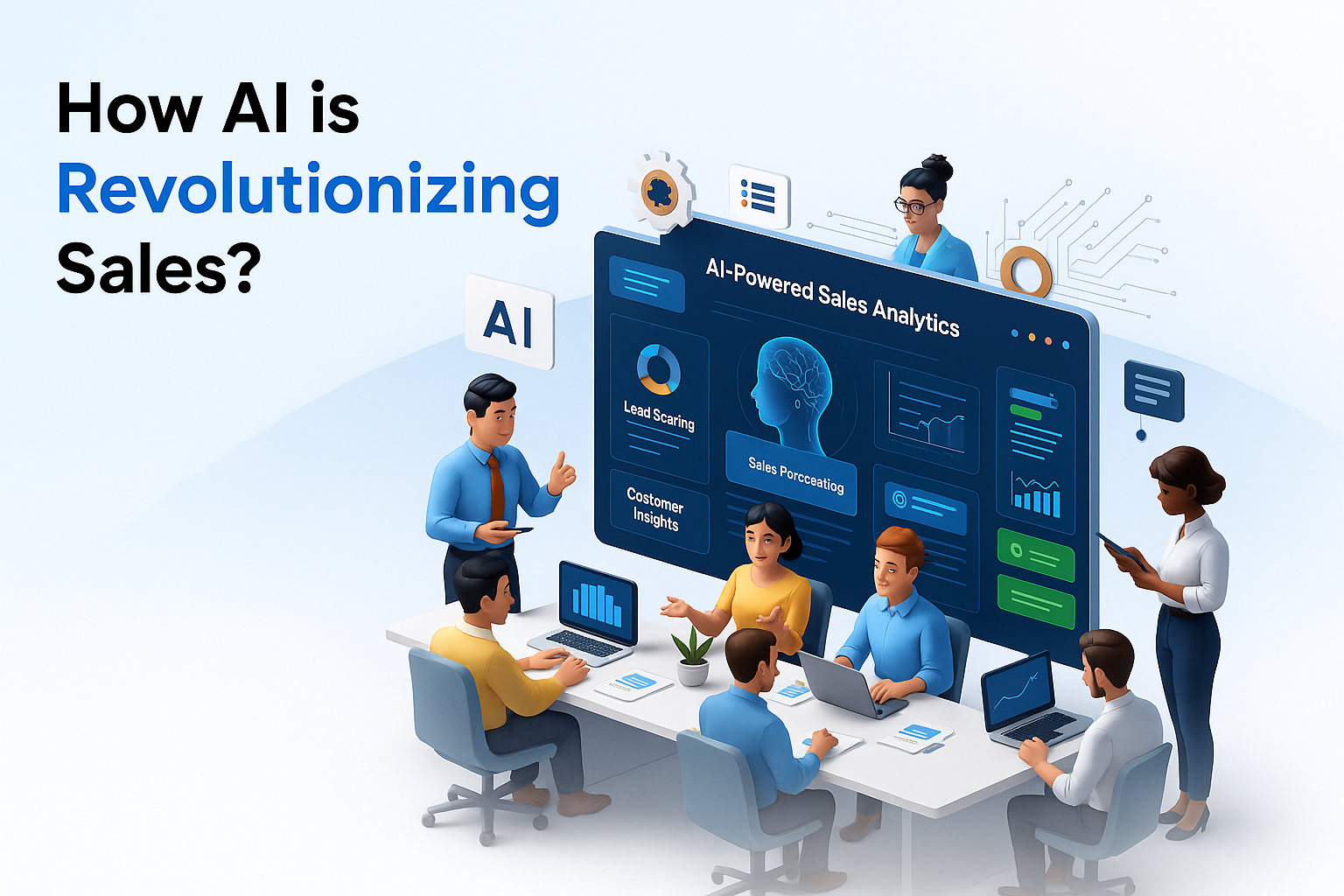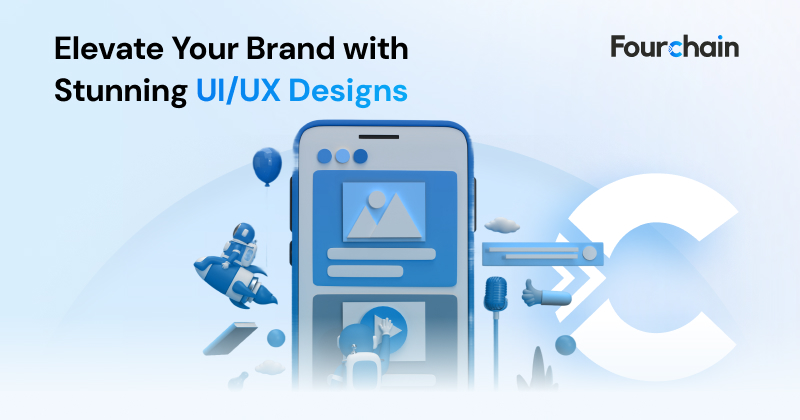How Artificial Intelligence Revolutionizes Sales

Sales used to be driven by instinct, a strong handshake, and dialing until your fingers were sore. Today, however, we have Artificial Intelligence (AI) equipped with data, precision, and algorithms that know your customer better than they know themselves.
AI is far from just a passing phrase in sales. It’s changing the way sales teams work, including how they find leads and how they pitch, price, and close deals. From predictive analytics that tell you who to dial next, to AI-powered chatbots for your initial outreach, and smart assistants providing real-time tips to help you during your sales pitch, there’s no denying that AI is the game changer in the sales space you didn't know you needed.
According to a McKinsey Report, AI companies increased leads and appointments by over 50%! This isn't science fiction; it's called sales optimization in real time. The bonus is that you don't need to be a technologist to start implementing AI. It doesn't matter if you are a startup founder, an enterprise leader, or a lone closer; there is an AI tool out there waiting to help you amplify your hustle.
So, let’s dive deep into how AI is transforming sales from the ground up and why it’s not just an upgrade, it’s a revolution.
Role of AI in Powering Sales:
1. AI-Powered Lead Generation: Discovering Hot Prospects with Precision
AI has proactively taken lead generation to new levels of precision and accuracy, busting through the traditional filters of job title or location. Based on actual behavioral signals from the buying process that allow it to measure potential purchasing intent (e.g., website visits, emails read, social media engagement, etc.),
AI can identify the leads that are most likely to purchase something right now and are ready to buy. Instead of poising the sales team based on a list of cold prospects, or no interest beyond their job title and location, the sales team is presented with an AI curated list of potential customers who have been determined to likely be buyers soon, the one who is most engaged, and who the sales team will focus their time and energy on, thus saving themselves significant effort and time, while drastically reducing the sales cycle.
For example, tools like ZoomInfo or Apollo AI can analyze a lead's behavior on the internet to assess and understand the lead "intent." If a person reviews your company's pricing page 3 times in one week, the AI will score this lead as 'hot', while also notifying your team members accordingly.
This allows you to then contact a lead within hours of their engagement, as opposed to a reminder from the CRM hours, days, or weeks after the engagement delays your ability to engage, and studies have suggested that converting leads is 35% more successful when they are engaged immediately (versus reminder in a specified time frames).
2. Predictive Analytics: Selling Smarter, Not Harder
AI-based predictive analytics enables sales teams to predict which leads are more likely to convert and where stocks or products are most likely to sell. The program ingests past CRM data, customer engagement, and interactions, as well as market signals such as market trends and comparative industry conditions.
In this way, sales reps will now rely on actionable data insights rather than gut instincts or old spreadsheets.
Considering InsideSales.com or Salesforce Einstein as examples, and measuring dozens of variables like time in deal, email opens, or length of calls. InsideSales.com tracks their own pattern of closings, and shows the probability of a sale closing based on historical closing probability, and actionable next steps.
This is powerful, as it allows sales representatives to focus on the deals that have the potential to close, shape their strategy to engage thought leaders within their prospects, and see an increase of up to 20% in closed deals, according to McKinsey.
3. AI Sales Assistants & Copilots: Your Smart Sidekick in Every Conversation
AI-driven sales assistants do not simply book meetings; they sit in calls (virtually), look for tone and keywords, and provide real-time recommendations to the rep. For example, if the prospect says “we’re not ready yet,” the AI may suggest the rep share a client success story that overcame a similar objection. These recommendations can make an already great conversation take on an even higher level of specificity and quality.
There are platforms like Gong.io and Chorus.ai that can use conversation intelligence to recognize the best-performing talk tracks and identify risks (like missed buying signals). The reps can revisit these moments later for coaching and strategy adjustments.
Companies using these tools report shorter sales cycles and a higher number of wins, thanks to AI being a digital coach that never sleeps.
4. Chatbots & Virtual Sales Agents: Round-the-Clock Selling
AI chatbots are more than just a new customer support tool - they are part of modern sales teams. When these AI-based bots are deployed on a website, landing page, or even WhatsApp, they can start conversations, qualify leads, and even schedule meetings for you 24/,7 and they can help your bounce rates and ensure that no lead is ever left unprocessed (even if it was off hours).
Both, Drift and Intercom allow you to build more advanced sales bots that can guide users through your custom flows, asking qualifying questions, and connecting high-intent leads to your human sales reps. Automating these initial connections with sales qualify leads vs human response aids in getting faster responses to leads as well as converting leads in the interested state & decreasing any opportunity for dropped engagement.
According to research from IBM, AI bots could very well reduce your customer acquisition cost by as much as 30% while also having a positive impact on the quality of initial prospect engagement (speech economies).
5. Personalized Outreach at Scale: Every Prospect Gets VIP Treatment
In the age of generic email blasts, AI has opened the door to hyper-personalized, personalized outreach for thousands of leads at once. AI systems analyze prospect behavior and buying and communication history before generating email replies that sound customized, even if they are fully automated.
Solutions like Mailshake, Smartwriter.ai and Outreach.io leverage GPT powered capabilities to auto-generate outreach content that stays true to the rep's tone while adding in key data points. The result is an incredible increase in your open and response rates.
Campaign Monitor indicates that personalized campaigns get 6x higher engagement rates than generic responses and, with the correct message, can generate warm leads from cold emails.
6. CRM Automation: Let AI Do the Boring Stuff
Recording call logs, updating CRM statuses, and scheduling follow-up tasks usually take hours from a salesperson’s day. AI helps automate these mundane tasks, allowing sales professionals to focus on their most critical task: closing deals. AI is capable of extracting information from emails and automatically updating pipeline stages, meaning AI will keep your CRM tidy while optimizing your time.
AI tools like HubSpot CRM and Zoho AI have recently developed features like smart reminders, auto data logging, and lead prioritization. These tools help eliminate human error and help ensure that no lead falls through the cracks.
Salesforce reports that reps using AI-powered CRMs can spend 34% more time in active selling, and this can have a dramatic effect on productivity and revenue.
7. Accurate Sales Forecasting: No More Crystal Balls
Sales AI can produce accurate predictions of future sales outcomes by examining pipeline velocity, win rates, seasonality, and buyer behavior. This can help sales leaders make better decisions on budgeting and setting achievable targets. AIs are constantly and dynamically updating without lag time in collecting data and making decisions.
Clari and Anaplan's AI tools, as an example have machine learning algorithms to at least flag for deal slippage to help sales leaders make calls on future revenue paths weeks in advance.
For example, if five similar deals fell off at the same stage last quarter, the system advised managers to start intervening closer to the beginning of future quarters. Companies using AI-based forecasting experienced up to 95% accuracy and much less last-minute, end-of-quarter panic.
8. Sentiment & Emotion Analysis: Reading Between the Lines
AI systems can gauge the emotions of buyers by analyzing voice calls, emails, and chats, not just for the words said, but the tone and sentiment as well. Are they excited? Hesitant? Skeptical? Knowing this is important for sales reps to design the pitch suited to that prospect emotionally for rapport and trust.
IBM Watson and Crystal Knows help assess emotional cues and even recommend altering the tone to establish a good connection.
For instance, if your email is deemed too aggressive, AI might suggest rewording it to be more compassionate and empathetic. Sales teams utilizing these recommendations have reported improved relationships with prospects with longer-term client relationships.
9. Dynamic Pricing Engines: The Science of the Perfect Quote
Pricing engines powered by AI can make intelligent recommendations on pricing based on deal size, competitor data, customer segment, and demand. Instead of quoting a fixed price, sales reps can build quotes that offer a competitive price while maximizing profitability in real-time.
AI-based pricing tools like PROS AI and Zilliant are used by B2B companies to improve pricing decisions on the fly. For example, if a company is a recurrent negotiator or price-sensitive, the AI will suggest to the sales rep to take it into account while quoting. This helps improve approval time and win rates while preserving the ability to keep profitable quotations.
10. Interactive Demos with AI Personalization: Let the Product Sell Itself
AI means product demos can be personalized live with a prospect based on their industry, size of business, and pain points. Hence, even if the demo was generated, each is uniquely relevant.
Using tools like Reprise, Walnut, and Demoboos, the users can create responsive product demo daemons that react mid-presentation. If the prospect asks about pricing during the features demo, the AI switches to a pricing deck. These tools provide profound engagement as they also personalize and understand the prospect, and create a shorter line of sight to purchase.
Conclusion: Welcome to the AI-First Sales Era
We are entering a world where:
- Sales teams are larger, not smarter
- Meetings are driven by assumptions, not data
- Forecasts are based on instincts, not real-time data
- Conversations are scripted, not strategic
Regardless if you are a startup founder or a sales rep with decades of experience, adopting AI is no longer optional - it's your best competitive advantage.
Final Thought:
The salespeople best suited for the AI era will be the ones who can combine human creativity with data-driven precision. You will still need heart, empathy, and hustle, but now you can rely on tech to take care of the work.
Note: IndiBlogHub features both user-submitted and editorial content. We do not verify third-party contributions. Read our Disclaimer and Privacy Policyfor details.



